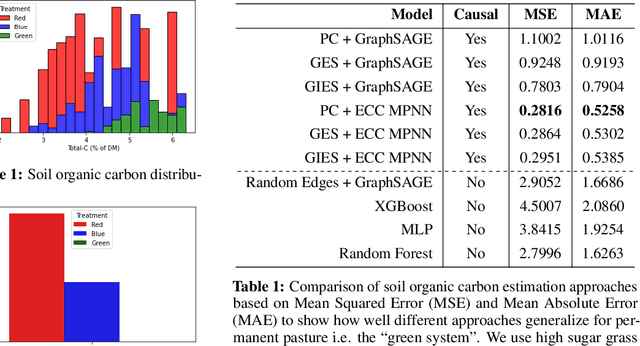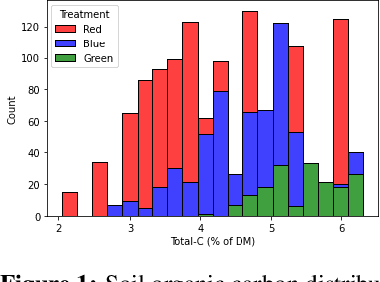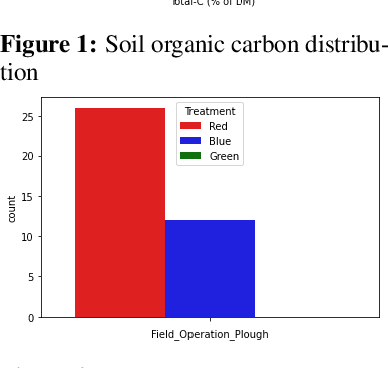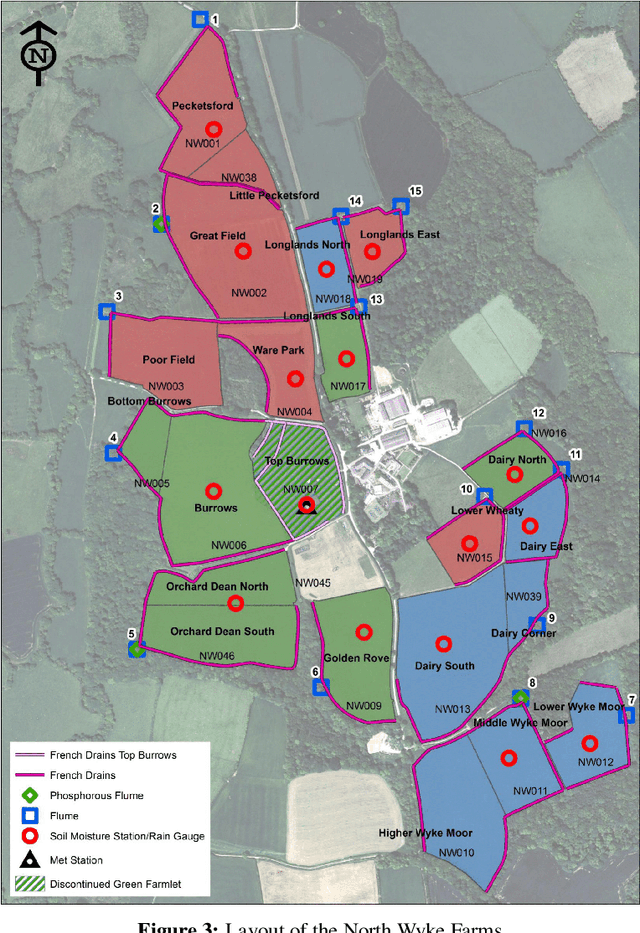John Crawford
Knowledge Guided Representation Learning and Causal Structure Learning in Soil Science
Jun 15, 2023



Abstract:An improved understanding of soil can enable more sustainable land-use practices. Nevertheless, soil is called a complex, living medium due to the complex interaction of different soil processes that limit our understanding of soil. Process-based models and analyzing observed data provide two avenues for improving our understanding of soil processes. Collecting observed data is cost-prohibitive but reflects real-world behavior, while process-based models can be used to generate ample synthetic data which may not be representative of reality. We propose a framework, knowledge-guided representation learning, and causal structure learning (KGRCL), to accelerate scientific discoveries in soil science. The framework improves representation learning for simulated soil processes via conditional distribution matching with observed soil processes. Simultaneously, the framework leverages both observed and simulated data to learn a causal structure among the soil processes. The learned causal graph is more representative of ground truth than other graphs generated from other causal discovery methods. Furthermore, the learned causal graph is leveraged in a supervised learning setup to predict the impact of fertilizer use and changing weather on soil carbon. We present the results in five different locations to show the improvement in the prediction performance in out-of-sample and few-shots setting.
Causal Modeling of Soil Processes for Improved Generalization
Nov 10, 2022



Abstract:Measuring and monitoring soil organic carbon is critical for agricultural productivity and for addressing critical environmental problems. Soil organic carbon not only enriches nutrition in soil, but also has a gamut of co-benefits such as improving water storage and limiting physical erosion. Despite a litany of work in soil organic carbon estimation, current approaches do not generalize well across soil conditions and management practices. We empirically show that explicit modeling of cause-and-effect relationships among the soil processes improves the out-of-distribution generalizability of prediction models. We provide a comparative analysis of soil organic carbon estimation models where the skeleton is estimated using causal discovery methods. Our framework provide an average improvement of 81% in test mean squared error and 52% in test mean absolute error.
 Add to Chrome
Add to Chrome Add to Firefox
Add to Firefox Add to Edge
Add to Edge